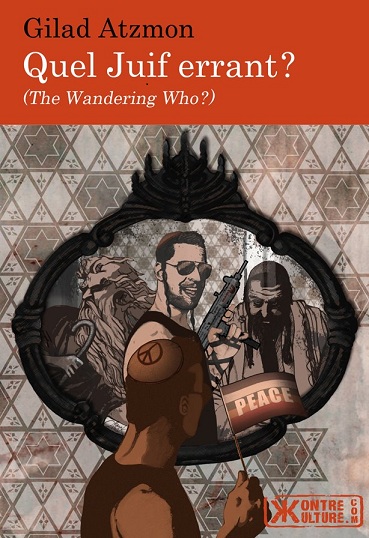Jerusalem and Athens
GA: the following is a comprehensive review of The Wandering Who and the controversy around it. It also includes an extended appendix of commentaries re the book both positive and negative.
Jerusalem and Athens
On Gilad Atzmon's Book "The Wandering Who" and the Reactions
Anis Hamadeh, October 4, 2014
http://www.anis-online.de/1/ton/78.htm
![]()
The Wandering Who? A Study Of Jewish Identity politics and Jewish Power in particular - available on Amazon.com & Amazon.co.uk
Gilad Atzmon's book "The Wandering Who" about Jewish identity politics has, since its publication three years ago, sparked most different reactions as well as particularly lively debates, as a glance on the controversial author's Wikipedia page shows. Some view him as an inspired fighter for justice, as an undaunted source of ideas and impulses, even a prophet, while others despise him as an "anti-Semite" and demonize him as a soul catcher in the quagmire of extreme right-wing ideas. What's in this prophetic devil's book? What do people say about it? What is to make of it? What happens on the 202 pages between the two covers resembles an elaborate jazz piece in its composition: Themes are employed and varied, circles closed, biographical details interpolated. At the heart of the study are - in a nutshell - two major theses: that there is a political ideological "Jewish-ness" which by far exceeds the boundaries of Zionism, and that, in this context, there is a deep gap between tribal interest politics and universal standards within the range of Jewish opinions: Jerusalem versus Athens, known from the problem of the Jewish vs. the democratic state. In 22 chapters, organized in four parts and supplemented by diverse fore- and afterwords, the author analyzes the heterogeneous Jewish collective from which he originates, often in a context with the Israeli crimes against the Palestinians. The self-critical impulse at the root of his criticism can be understood while reading the epilogue, where Gilad Atzmon recounts an episode from his school days in Israel: On a visit to Yad Vashem the fourteen-year-old asks the teacher why so many Europeans loathed the Jews so much and in so many places at once. The subsequent punishment did not silence the querist; apparently, similar scenes were to follow. Thus the author self-assesses not to look at Jews or Israelis, but in the mirror (p 94). This is essential for understanding his motivation.
PART 1: WHAT'S IN IT?
Atzmon is a dissident, someone who, during his time in the Israeli army, discovered lies and inconsistencies he started to consequently pursue, as he describes in the introductory part of "The Wandering Who". What did the first Israeli president mean when he spoke about a Jewish "primary quality" (p 16f) that ranks higher than civic commitments of Jews toward a diaspora country? Atzmon analyzes Victor Ostrovsky, a deserter ex-Mossad agent (p 18ff), and his description of "sayanim", diaspora Jewish helpers for the Jewish cause. What enabled Wolfowitz, Greenspan and others to mobilize the USA for Zionist interests? It was in any case no conspiracy, writes Atzmon, for everything was in the open and public (p 30).












